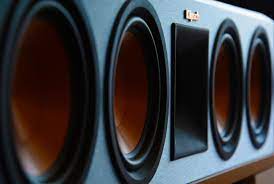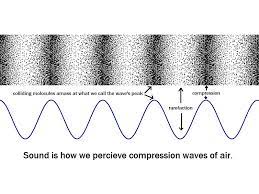Table of Contents
Do you feel like the bass noise coming from your neighbor’s house is cramping your style and ruining the peace at home? You’re not alone. This booming sound can be more than just annoying; it can cause real distress in busy urban areas, disrupting sleep patterns, affecting mental health, and making daily life unbearable. But here’s some good news: if you take action to block bass noise at home, it doesn’t have to be this way! In this blog post, we’ll be exploring the different ways of blocking bass noise so that you can enjoy a peaceful home environment for yourself and those around you. So let’s get started!

What Is a Bass Noise and Can It Be Disruptive?
Bass noise, also known as low-frequency sound, is a type of sound that has a lower frequency than regular sounds. It’s often described as a dull thumping sound and can be heard from miles away when played at high volumes. Bass noise is not just annoying; it can actually be dangerous to people’s health and disrupt peacefulness in the home. The constant exposure to bass vibration can cause hearing loss, tinnitus, headaches, insomnia, stress and even cardiovascular problems for those living close by.

In addition to this, the loud volume of bass noise can make it difficult to concentrate or relax in your own home environment. As such, taking steps to reduce or block out bass noise is essential for maintaining peace and quiet in your home.
First Step: Identify The Source of Bass Noise
Uncover the culprit behind those thumping sounds- Is it a construction site, music blaring next door or something else? Don’t fret. We’ve got you covered with these steps to identify what’s causing the bass noise hassle and help take necessary action!
If you’re being serenaded by some low-frequency noise, it’s time to find the source of that beat! You could be facing heavy construction equipment rumbling nearby, a subway or tram line passing by, maybe you are hearing music from a nearby pub, or your neighbor is having their own party. Knowing where those bass tones are coming from allows you to take action and put an end to the sound system thumping in your direction.

Next Step: Reduce The Bass Noise
What are the different ways to block out bass noise at home? We can suggest a few of them:
- Use Physical Barriers
- Use White Noise
- Check Your Air Conditioning
- Use Earplugs or Noise-Canceling Headphones
- Communicate With the Source
- Contact Local Authorities.
Use Physical Barriers
One way to block bass noise is to use physical barriers such as thick walls or windows. The most effective ways to block bass noise is by installing insulation in your walls and windows.
You can also use soundproofing materials, such as acoustic panels or foam, to absorb the noise. By hanging the soundproof curtains, you add a layer of heavy, insulated curtains to your windows can help block out bass noise by dampening the vibrations and reducing the sound levels.
In order to get rid of sounds from the lower floors, you can lay a thick enough carpet or rug in the room. Or add pillows and blankets on sofas and armchairs – they will work as sound-absorbing materials.
Use White Noise
White noise is a type of noise that can mask other sounds and help you sleep or relax. You can use a white noise machine or play white noise through your speakers to help block out bass noise. A white noise machine or fan can be used to generate ambient sounds that mask out bass noises. This is especially helpful if you’re trying to sleep or relax in an otherwise noisy area.
1. The Amazon’s Best Pick – LectroFan Evo White Noise Sound Machine

- LectroFan EVO: This compact sleep sound machine from Adaptive Sound Technologies offers 22 non-looping (non-repeating) sounds,...
- Noise Masking Mastery: With precision volume control, the LectroFan sleep machine for deep sleep drowns out disruptive noise, helping...
- Sleep Timer Feature: Equipped with a convenient sleep timer, this sleep device can be set to automatically turn off, ensuring...
If you struggle to drift off and stay asleep, the calming hum of a fan, ocean waves or any shade of white, pink or brown noise can be your saving grace. These sounds will mask pesky environmental noises that would otherwise disrupt your much-needed rest.
Featuring an electronic design without any internal moving parts, you get more sound variety than ever before – all digitally produced through a high-fidelity speaker for optimum quality. Sleep like never before with this advanced sleep aid solution!
Check Your Air Conditioning
Your air conditioning system may be producing a low-frequency noise due to a variety of different factors. This can include loose parts, worn bearings, improper installation, or inadequate maintenance. Additionally, an improperly sized air conditioner or insufficient insulation can also lead to lower frequency noises. If you suspect your air conditioning system is the source of bass noise in your home, contact a professional for help resolving the issue.
Use Earplugs or Noise-Canceling Headphones
If you can’t eliminate the bass noise completely, using earplugs or noise-canceling headphones can help reduce the volume and make it more manageable. Get the most out of your soundscape by investing in earplugs or noise-canceling headphones. They will dramatically reduce any distracting bass noises, leaving you with a more peaceful audio experience.
Earplugs and noise-canceling headphones work by blocking out specific frequencies of sound, including bass noise. This works in two ways—by either completely blocking or dampening the lower frequency sounds. Depending on the type of earplugs or headphones you choose, they can be very effective at reducing the volume of bass noises that may be entering your home. Using these devices can also help to reduce any physical discomfort caused from low-frequency vibrations inside or outside your home.
2. Best for High Fidelity Hearing Protection – Loop Experience Ear Plugs for Concerts

- NOISE REDUCTION - Loop Experience earplugs are high-fidelity, noise-reducing earplugs that make sure you still hear everything, just a...
- STYLISH COMFORT - These noise filtering earplugs come in 4 different sizes, so you can always find the perfect fit. The iconic round...
- MULTI-PURPOSE - Loop Experience are high-fidelity earplugs that preserve sound quality but avoid noise pollution. They protect your...
Loop Experience earplugs keep all the sound, just lower the volume. With an NRR of 18 decibels and 4 fashionable colors to choose from, they are perfect for any outing while still protecting your ears.
Loop Experience earplugs are designed to preserve sound quality while protecting your ears from the hazardous noise level at concerts, festivals, live events and even motorcycle rides. Not only that, these high-fidelity earplugs make it easy for people who struggle with noise sensitivity such as musicians, parents and more to enjoy themselves without worrying about damage done to their hearing.
3. Best for Noise Sensitivity Conditions –Eargasm High Fidelity Earplugs

- FIRST CLASS HEARING PROTECTION - Our High Fidelity Earplugs protect your ears from harmful noise levels while still allowing you to...
- PRISTINE SOUND QUALITY - Our innovative attenuation filters allow you to hear the world around you, just at a lower volume. Reduces...
- USE EARGASM ANYWHERE - Fantastic ear plugs for concerts, noise sensitivity, tinnitus relief, motorcycles, musicians, drummers, noise...
These High Fidelity Earplugs protect your ears from hazardous noise levels while still allowing you to hear those around you. With up to 21dB of protection (NRR 16 dB) that will ensure risk-free hearing, these ear plugs are the perfect solution for anyone who loves experiencing loud and exciting events without worrying about any long term damage! Now with our exclusive ear plugs, tinnitus, anxiety and other noise induced hearing loss issues can be avoided all together.
4. Best for Loud Noise and Construction – Flents Foam Ear Plugs

- HEARING PROTECTION: for Sleeping, Loud Noise, Concerts, Construction, Heavy Machinery, Music, and other loud environments. Also great...
- Multi-purpose, can be used for sleep, travel, work, concerts, or to block external sound
- COMFORTABLE FIT: Smooth, Comfortable, Extra soft and extra light foam that tapers to your ear canal for a custom fit
Achieve undisturbed sleep, relief from snoring, comfort during concerts and flights with Flents Quiet Time Ear Plugs. Crafted of soft foam that is tapered to fit your ear canal snugly yet comfortably for extended wear, these ear plugs boast an impressive noise reduction rating (NRR) of 33 decibels – the highest in its class! Everything you need comes conveniently packaged in a jar containing 50 pairs of these top-notch earplugs.
Communicate With the Source
If the bass noise is coming from a neighbor or another nearby source, it may be helpful to communicate with them about the issue. You can try talking to them directly or contacting a mediator or authorities to help resolve the issue.
Contact Local Authorities
Finally, if the source of the bass noise is coming from outside of your home, contact your local authorities for assistance in resolving the issue. This is especially important if the noise is coming from a commercial source, such as a nightclub or factory. By taking these steps, you can create a peaceful environment in your home and reduce any disruptive bass noises that could be compromising your quality of life.
Conclusion
Bass noise can be disruptive to the peacefulness of a home and have serious health implications for those living close by. Taking care of yourself and those around you is essential for maintaining peace and quiet in your home. By identifying the source, using insulation and physical barriers, playing white noise, and communicating with the source or local authorities, you can take proactive steps to reduce bass noise and create a more peaceful environment!
